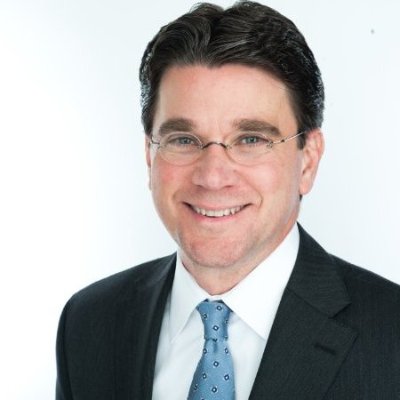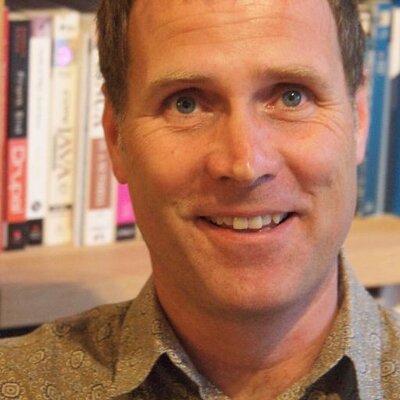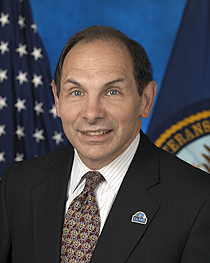Latest News
FDA to Advance Precision Medicine by Enabling Open Source Collaborative Informatics
 FDA plays an integral role in President Obama’s Precision Medicine Initiative, which foresees the day when an individual’s medical care will be tailored in part based on their unique characteristics and genetic make-up. Yet while more than 80 million genetic variants have been found in the human genome, we don’t understand the role that most of these variants play in health or disease. Achieving the President’s vision requires working collaboratively to ensure the accuracy of genetic tests in detecting and interpreting genetic variants. We are working towards that goal by developing an informatics community and supporting platform we call precisionFDA.
FDA plays an integral role in President Obama’s Precision Medicine Initiative, which foresees the day when an individual’s medical care will be tailored in part based on their unique characteristics and genetic make-up. Yet while more than 80 million genetic variants have been found in the human genome, we don’t understand the role that most of these variants play in health or disease. Achieving the President’s vision requires working collaboratively to ensure the accuracy of genetic tests in detecting and interpreting genetic variants. We are working towards that goal by developing an informatics community and supporting platform we call precisionFDA.
- Login to post comments
When the Healthcare System Works
 As I’ve written about several times in the past, this “care traffic control”, directing the patient to right intensity of care, then closing the loop for followup care is the future of medicine. It’s high quality, lower cost, and improves outcomes. The IT systems required to do it are more about workflow and process than the simple capture of records. As we envision the next generation of electronic tools, support for team based care with handoff management and closed loop communication among the stakeholders will be the most important new features. Read More »
As I’ve written about several times in the past, this “care traffic control”, directing the patient to right intensity of care, then closing the loop for followup care is the future of medicine. It’s high quality, lower cost, and improves outcomes. The IT systems required to do it are more about workflow and process than the simple capture of records. As we envision the next generation of electronic tools, support for team based care with handoff management and closed loop communication among the stakeholders will be the most important new features. Read More »
- Login to post comments
A Call To Policy Makers: Open Source Is Where Innovation Is Happening
 The impact of technology on society and the economy continues to excite and challenge all of us. Policy makers are no exception. Their objective—writ large—is to put in place policies that encourage the development and deployment of beneficial technologies in order to drive growth, prosperity, and the general welfare of their citizens. Where should policy makers focus? The best place is where the future is happening. In other words, the best place is where innovation is happening...
The impact of technology on society and the economy continues to excite and challenge all of us. Policy makers are no exception. Their objective—writ large—is to put in place policies that encourage the development and deployment of beneficial technologies in order to drive growth, prosperity, and the general welfare of their citizens. Where should policy makers focus? The best place is where the future is happening. In other words, the best place is where innovation is happening...
- Login to post comments
UK Health Service Nurtures Open Source Communities
 The United Kingdom’s National Health Service (NHS) is nurturing a growing number of communities of software developers working on open source solutions. NHS’ Code4Health team is now supporting 17 communities that bring together health care providers, developers and supporters. Examples include Open Odonto, open source software for dentistry, and openMAXIMS, guiding the development of an open source electronic patient record system for the NHS. A third community working with Code4health is openEobs, a project that helps clinicians and managers ensure safer patients, safer wards and safer hospitals.
The United Kingdom’s National Health Service (NHS) is nurturing a growing number of communities of software developers working on open source solutions. NHS’ Code4Health team is now supporting 17 communities that bring together health care providers, developers and supporters. Examples include Open Odonto, open source software for dentistry, and openMAXIMS, guiding the development of an open source electronic patient record system for the NHS. A third community working with Code4health is openEobs, a project that helps clinicians and managers ensure safer patients, safer wards and safer hospitals.
- Login to post comments
EHR Interoperability With Long-Term Care Providers Wanted, but Who Will Pay?
CMS has urged skilled nursing facilities (SNFs) and home care agencies to acquire electronic health record systems that are capable of exchanging data with hospitals and other health care providers, but it hasn't explained where these long-term and post-acute-care (LTPAC) providers will get the money to implement these health IT systems. LTPAC providers are ineligible to participate in the federal EHR incentive program. CMS has proposed raising payments to SNFs by 1.4% in fiscal year 2016, but that is barely enough to cover inflation. Beginning in FY 2018, CMS plans to apply the same value-based payment system to SNFs that it already is using with hospitals and physicians. Many of those providers, however, have more advanced health IT systems to help them make that transition.
- Login to post comments
OSEHRA 2015: VA Secretary Articulates Open Source Strategy as the Core of VA’s Transformation During Summit
 Robert A. McDonald, Secretary of the US Department of Veterans Affairs (VA), articulated a clear strategy for the VA’s technology efforts based on open source, crowdsourcing and agile development during a speech at the 2015 OSEHRA Open Source Summit in Bethesda, MD yesterday. McDonald, who was the keynote speaker of the conference, gave an overview of the crisis that the VA was facing a year ago and the steps taken to address the crisis. McDonald said that his primary step was to change the focus of the discussion from problems within the VA bureaucracy to a focus of placing the customers, America's veterans and military personnel, at the center of things.
Robert A. McDonald, Secretary of the US Department of Veterans Affairs (VA), articulated a clear strategy for the VA’s technology efforts based on open source, crowdsourcing and agile development during a speech at the 2015 OSEHRA Open Source Summit in Bethesda, MD yesterday. McDonald, who was the keynote speaker of the conference, gave an overview of the crisis that the VA was facing a year ago and the steps taken to address the crisis. McDonald said that his primary step was to change the focus of the discussion from problems within the VA bureaucracy to a focus of placing the customers, America's veterans and military personnel, at the center of things.
- Login to post comments
OSEHRA 2015 Summit to Feature Several Major Open Health IT Projects
 The 2015 OSEHRA Open Source Summit is opening in two days with a panel addressing the need for the open health community to join forces and work together to change the current health IT paradigm from expensive and outdated pre-internet mainframe solutions to innovative open solutions. The panel brings together six leaders from diverse open health communities and technologies to discuss how the community can join forces. I have the honor of being the moderator of the panel. The speakers for the Open Health panel are...
The 2015 OSEHRA Open Source Summit is opening in two days with a panel addressing the need for the open health community to join forces and work together to change the current health IT paradigm from expensive and outdated pre-internet mainframe solutions to innovative open solutions. The panel brings together six leaders from diverse open health communities and technologies to discuss how the community can join forces. I have the honor of being the moderator of the panel. The speakers for the Open Health panel are...
Why Open Source Hardware Creators Win
 While recently demonstrating a prototype to a family member I was asked, "Are you going to patent that?" While happy to see such enthusiasm, I tactfully declared that I couldn’t seek a patent, as it was built using open source components. This perplexed my family member who, being from a generation or two (or three) before me, thought that is how "inventing things works." So, I did my best to explain the seemingly "hippie-ish" concepts of open source, copyleft, and Creative Commons licenses to someone from America’s Greatest Generation with little success. In the end, we simply agreed to disagree on the issues of patents and capitalist pursuit.
While recently demonstrating a prototype to a family member I was asked, "Are you going to patent that?" While happy to see such enthusiasm, I tactfully declared that I couldn’t seek a patent, as it was built using open source components. This perplexed my family member who, being from a generation or two (or three) before me, thought that is how "inventing things works." So, I did my best to explain the seemingly "hippie-ish" concepts of open source, copyleft, and Creative Commons licenses to someone from America’s Greatest Generation with little success. In the end, we simply agreed to disagree on the issues of patents and capitalist pursuit.
- Login to post comments
Interview with Andrej Verity on the Humanitarian.ID Crisis App
 One of the most exciting parts of working in tech is seeing firsthand how it empowers people to solve previously indomitable problems. But the best solutions don’t just materialize on their own — they must be driven forward, often against major odds, by passionate individuals and organizations dedicated to making them a reality. Over the past year, we’ve had the honor of working with Andrej Verity of the UN Office for the Coordination of Humanitarian Affairs (OCHA), who is just such a person. We sat down to talk to him about Humanitarian.ID, the contact management application that transforms how responders coordinate during humanitarian disasters.
One of the most exciting parts of working in tech is seeing firsthand how it empowers people to solve previously indomitable problems. But the best solutions don’t just materialize on their own — they must be driven forward, often against major odds, by passionate individuals and organizations dedicated to making them a reality. Over the past year, we’ve had the honor of working with Andrej Verity of the UN Office for the Coordination of Humanitarian Affairs (OCHA), who is just such a person. We sat down to talk to him about Humanitarian.ID, the contact management application that transforms how responders coordinate during humanitarian disasters.
- Login to post comments
Memorial Sloan Kettering-Early Adopter of Drupal 8 Open Source CMS
 At Memorial Sloan Kettering (MSK), the world's oldest and largest private cancer center, our researchers and clinicians have pushed boundaries to generate new knowledge in patient care and cancer research for more than 130 years. This culture of innovation allows our scientists to continually develop new methods for treatment and work tirelessly to discover more effective strategies to prevent, control, and ultimately cure cancer...We chose to build with Drupal 8 for many reasons—which we explained at DrupalCon LA and I elaborated on the Phase2 blog—but when we set out, there was no guarantee that the platform would deliver on our goals. Drupal 8 was far from an official launch. But as with all bold pursuits at MSK, a little bit of uncertainty is a given. This mix of careful consideration, persistence, and unanswered questions is what drives progress, whether in the lab or on the web...
At Memorial Sloan Kettering (MSK), the world's oldest and largest private cancer center, our researchers and clinicians have pushed boundaries to generate new knowledge in patient care and cancer research for more than 130 years. This culture of innovation allows our scientists to continually develop new methods for treatment and work tirelessly to discover more effective strategies to prevent, control, and ultimately cure cancer...We chose to build with Drupal 8 for many reasons—which we explained at DrupalCon LA and I elaborated on the Phase2 blog—but when we set out, there was no guarantee that the platform would deliver on our goals. Drupal 8 was far from an official launch. But as with all bold pursuits at MSK, a little bit of uncertainty is a given. This mix of careful consideration, persistence, and unanswered questions is what drives progress, whether in the lab or on the web...
- Login to post comments